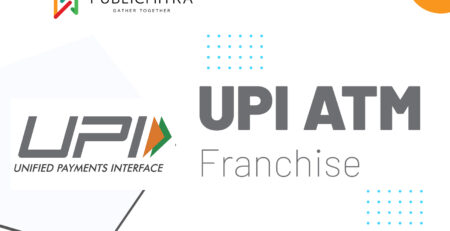Scale AI: The Complete Guide to AI Data Infrastructure Leadership – Investors, Competitors, and Company Analysis 2025
Introduction: Understanding Scale AI’s Market Position
Scale AI has emerged as one of the most significant players in the artificial intelligence infrastructure space, transforming how companies develop, train, and deploy AI models. Founded in 2016 by Alexander Wang, the San Francisco-based company has become synonymous with high-quality training data and AI model evaluation services. With recent major investments and a valuation reaching unprecedented heights, Scale AI represents a critical infrastructure layer for the modern AI economy.
The company’s trajectory from a startup to a multi-billion dollar enterprise reflects the growing importance of data quality in AI development. As organizations across industries rush to implement AI solutions, the demand for reliable, accurately labeled training data has skyrocketed. Scale AI positioned itself at the center of this transformation, providing essential services that enable everything from autonomous vehicles to large language models.
Scale AI Investors: A Deep Dive into Major Funding Rounds
The Meta Investment: A Game-Changing Partnership
The most significant development in Scale AI’s funding history occurred in 2025 when Meta invested $14.3 billion in Scale AI in June 2025, acquiring a 49% non-voting stake and increasing the firm’s valuation to $29 billion. This massive investment represents one of the largest AI-focused funding rounds in history and demonstrates Meta’s commitment to securing access to high-quality training data for its AI initiatives.
The Meta partnership extends beyond financial investment, creating strategic synergies between the social media giant’s AI ambitions and Scale AI’s data infrastructure capabilities. This relationship positions Scale AI as a critical partner for one of the world’s largest technology companies, providing stability and growth opportunities that few startups achieve.
Series F Funding Round: Building on Strong Foundation
Prior to the Meta investment, Scale AI raised a $1 billion Series F round from a slew of big-name institutional and corporate investors including Amazon and Meta. This round, led by existing investor Accel, brought the company’s valuation to $13.8 billion and demonstrated continued confidence from both new and existing investors.
The Series F participants represent a who’s who of technology investing, including Y Combinator, Nat Friedman, Index Ventures, and Founders Fund. This diverse investor base provides Scale AI with not only capital but also strategic guidance and industry connections that have proven invaluable for the company’s growth.
Historical Funding Progression
Scale AI has raised a total of $1.6 billion in funding across 7 rounds, with its most recent Series F round securing $1 billion in May 2024. The company’s funding progression illustrates the growing recognition of data infrastructure’s importance in the AI ecosystem:
- Early Rounds (2016-2019): Initial funding focused on establishing the core data labeling platform
- Growth Rounds (2020-2022): Expansion into new verticals and geographic markets
- Late-Stage Rounds (2023-2025): Massive scaling to meet enterprise demand and strategic partnerships
The funding trajectory shows how investor appetite for AI infrastructure companies has evolved, with later rounds achieving significantly higher valuations as the market recognized the strategic importance of quality training data.
Scale AI Competitors: Navigating the Data Annotation Landscape
Primary Competitors in Data Labeling
The AI data annotation market has become increasingly competitive as demand for training data has exploded. Several alternatives to Scale AI exist in the AI data labeling and training domain. Companies like Labelbox, Supervisely, and Alegion offer similar services, providing platforms for data annotation, model training, and deployment.
Labelbox has emerged as one of Scale AI’s most direct competitors, offering a comprehensive platform for data labeling and model training. The company focuses on providing tools that enable in-house teams to manage their annotation workflows while maintaining high quality standards.
Supervisely differentiates itself through specialized computer vision capabilities, particularly in medical imaging and autonomous vehicle applications. Their platform emphasizes advanced annotation tools and collaboration features for complex visual data projects.
Alegion (now part of Appen) targets enterprise customers with sophisticated data needs, offering both technology platforms and managed services for large-scale annotation projects.
Cloud Platform Alternatives
Amazon SageMaker Ground Truth, Google Cloud AutoML represent significant competitive threats from major cloud providers. These platforms integrate data labeling capabilities directly into broader machine learning workflows, offering convenience and cost advantages for organizations already using these cloud ecosystems.
Amazon SageMaker Ground Truth leverages Amazon’s mechanical turk workforce and active learning algorithms to reduce annotation costs while maintaining quality. The integration with AWS’s broader AI/ML services makes it attractive for enterprises already committed to the Amazon ecosystem.
Google Cloud AutoML provides automated data labeling capabilities alongside traditional human annotation services. Google’s approach emphasizes reducing the need for large amounts of labeled data through advanced machine learning techniques.
Specialized Competitors and Market Dynamics
Founded in California in 2020, Surge AI is a direct Scale AI competitor. However, it differentiates itself by using what it describes as “elite” labellers who are often more educated and skilled. This positioning reflects a broader trend in the market toward specialized, high-quality annotation services for complex AI applications.
Recent market developments have created new competitive dynamics. Just a week following the Meta investment, two of these major players, OpenAI and Google, pulled back. They announced plans to move away from Scale AI for dataset creation. This shift highlights concerns about vendor concentration and data security that have become more prominent as AI becomes strategically critical for major technology companies.
Emerging Competition and Market Trends
The competitive landscape continues to evolve with new entrants focusing on specific niches:
- CVAT offers open-source annotation tools for organizations preferring self-hosted solutions
- SuperAnnotate emphasizes collaborative annotation workflows and advanced quality control
- Encord focuses on video and medical imaging annotation with AI-assisted labeling capabilities
- V7 Labs provides end-to-end computer vision development platforms
These competitors reflect different strategic approaches to the data annotation market, from open-source community-driven development to highly specialized vertical solutions.
Scale AI Remote Work Culture and Employment Experience
Remote Work Policies and Flexibility
Scale AI’s approach to remote work reflects broader trends in the technology industry while maintaining its high-performance culture. This freelance opportunity is remote and hours are flexible, so you can work whenever is best for you, indicating the company’s embrace of flexible work arrangements, particularly for certain roles and contract positions.
The company maintains a hybrid approach that balances remote flexibility with in-person collaboration. We welcome guests to our offices, and you can expect to see Scalien families and friends around. Join local happy hours, and accept invites to game nights, book clubs, and many other employee-led community events. This suggests a culture that values both professional flexibility and personal connections among team members.
Employee Experience and Work Environment
Employee feedback reveals a complex picture of working at Scale AI. Working at Scale is a compelling experience for those who thrive in a highly stimulating, high-stakes, high-reward environment. It’s a place where your contributions genuinely matter, and you can see the direct impact of your work on the company’s growth.
This high-intensity environment appeals to many employees who value rapid career growth and meaningful work, but it also comes with challenges. The fast-paced nature of the AI industry and Scale AI’s position as a market leader creates pressure that may not suit all personality types or career stages.
Workforce Management and Recent Challenges
Recent employee reviews highlight some concerns about workforce stability. This was a decent job until they let go of over 100 of us in 2024 without notice, reason, or recompense, and I found out they did the same in 2023. These layoffs reflect broader industry trends as AI companies adjust to changing market conditions and optimize their operations for long-term sustainability.
The layoffs particularly affected contractors and certain full-time positions, highlighting the challenges of managing a large, distributed workforce in a rapidly evolving industry. However, core engineering and strategic roles have remained more stable as the company focuses on its essential capabilities.
Career Opportunities and Professional Development
Scale AI offers diverse career paths across multiple disciplines:
- Engineering Roles: Machine learning engineers, software developers, and data scientists
- Operations Positions: Project managers, quality assurance specialists, and customer success managers
- Business Functions: Sales, marketing, finance, and strategic partnerships
- Specialized Roles: AI researchers, domain experts, and technical writers
The company’s rapid growth and expanding market presence create numerous advancement opportunities, though the competitive environment means high performance standards across all roles.
Is Scale AI a Good Company? Comprehensive Analysis
Financial Performance and Market Position
Scale AI’s financial trajectory demonstrates remarkable growth and market validation. The company’s progression from startup to a $29 billion valuation reflects both strong execution and favorable market conditions for AI infrastructure companies. Revenue growth has been substantial, though specific figures remain private as the company has not gone public.
The company’s customer base includes some of the most sophisticated AI developers in the world, from autonomous vehicle manufacturers to large language model creators. This customer concentration in high-value, technically demanding applications demonstrates Scale AI’s ability to deliver enterprise-grade solutions.
Competitive Advantages and Market Moats
Scale AI has built several competitive advantages that protect its market position:
Quality and Reliability: The company has established reputation for delivering high-quality annotated data that meets the stringent requirements of mission-critical AI applications. This quality focus has become a significant differentiator in a market where accuracy directly impacts AI model performance.
Scale and Efficiency: Scale AI’s name reflects its core capability – the ability to handle massive data annotation projects efficiently. The company’s infrastructure and workforce management systems enable it to scale annotation projects from thousands to millions of data points while maintaining quality standards.
Technology Integration: Beyond basic annotation services, Scale AI has developed sophisticated tools for data management, quality control, and workflow optimization. These technological capabilities create switching costs for customers and enable more complex project execution.
Strategic Partnerships: The Meta investment and relationships with major AI companies provide Scale AI with unique insights into market needs and early access to emerging requirements.
Challenges and Risk Factors
Despite its success, Scale AI faces several significant challenges:
Customer Concentration Risk: The company’s dependence on a relatively small number of large customers creates vulnerability to customer loss or demand changes. OpenAI and Google, pulled back. They announced plans to move away from Scale AI for dataset creation illustrates this risk.
Competitive Pressure: The success of the AI data annotation market has attracted numerous competitors, including well-funded startups and major technology companies with integrated offerings.
Regulatory and Privacy Concerns: As AI regulation evolves globally, data annotation companies face increasing compliance requirements and potential restrictions on data handling practices.
Technology Disruption: Advances in automated annotation, synthetic data generation, and few-shot learning could potentially reduce demand for traditional human annotation services.
Corporate Governance and Leadership
Alexander Wang’s leadership has been instrumental in Scale AI’s growth, though the company has faced some criticism regarding workforce management practices. Scale-AI’s Outlier workplace culture is unmistakably authoritarian according to some contractor experiences, though full-time employee experiences appear more positive overall.
The company’s board includes experienced technology investors and operators who provide strategic guidance. The recent Meta investment also brings additional governance oversight and strategic alignment that could benefit long-term decision-making.
Innovation and Research Initiatives
Scale AI continues to invest heavily in research and development to maintain its technological edge. The company’s SEAL (Safety, Evaluations, and Alignment Lab) initiative focuses on AI safety and evaluation methodologies, positioning Scale AI as a thought leader in responsible AI development.
Research investments include:
- Advanced annotation automation techniques
- Quality assurance and validation methodologies
- Domain-specific annotation tools and workflows
- Integration with emerging AI development frameworks
Market Outlook and Future Prospects
Industry Growth Trends
Global VC investment in AI companies saw remarkable growth in 2024, as funding to AI-related companies exceeded $100 billion, an increase of over 80% from $55.6 billion in 2023. This massive investment in AI infrastructure companies reflects the growing recognition that data quality and availability are critical bottlenecks for AI development.
The AI data annotation market is expected to continue growing as:
- More industries adopt AI solutions
- Model complexity increases, requiring more sophisticated training data
- Regulatory requirements demand better data provenance and quality documentation
- Multimodal AI applications require diverse data types and annotation approaches
Strategic Positioning for Growth
Scale AI’s positioning in the AI value chain provides multiple avenues for growth:
Vertical Expansion: The company can leverage its core capabilities to enter new industry verticals with specific data annotation needs, such as healthcare, financial services, and manufacturing.
Geographic Expansion: International markets present significant opportunities, particularly in regions with strong AI development ecosystems but limited data annotation infrastructure.
Platform Evolution: Expanding from pure annotation services to broader AI development platform capabilities could increase customer lifetime value and reduce competitive threats.
Synthetic Data Integration: Combining traditional annotation with synthetic data generation could provide more comprehensive solutions while reducing costs.
Long-term Competitive Dynamics
The AI data annotation market is likely to evolve toward greater specialization and integration. Companies that can provide end-to-end solutions while maintaining high quality standards will have advantages over pure-play annotation services or generalist platforms.
Scale AI’s challenge will be maintaining its quality leadership while expanding capabilities and managing the competitive dynamics created by its success. The Meta partnership provides resources and strategic alignment that could prove decisive in this evolution.
Conclusion: Scale AI’s Position in the AI Ecosystem
Scale AI represents a critical infrastructure layer in the modern AI economy, providing essential services that enable the development and deployment of sophisticated AI systems. The company’s remarkable growth trajectory, from startup to $29 billion valuation, reflects both strong execution and the fundamental importance of high-quality training data in AI development.
The recent Meta investment validates Scale AI’s strategic importance while providing resources for continued growth and innovation. However, the company operates in an increasingly competitive market with significant technological and regulatory challenges ahead.
For potential employees, Scale AI offers opportunities to work on cutting-edge AI projects with significant impact, though the high-pressure environment may not suit everyone. The company’s remote work flexibility and strong compensation packages make it attractive for many technology professionals.
For customers and partners, Scale AI provides proven capabilities in data annotation and AI development support, though organizations should consider the risks of vendor concentration and evaluate alternatives based on their specific needs and risk tolerance.
The company’s future success will depend on its ability to maintain quality leadership while expanding capabilities, managing competitive pressures, and navigating the evolving regulatory landscape for AI development. Scale AI’s position as a critical infrastructure provider in the AI ecosystem suggests continued relevance, but execution excellence will be essential for maintaining market leadership.
As the AI industry continues to mature, Scale AI’s role in enabling high-quality AI development positions it well for long-term success, provided it can successfully navigate the challenges of rapid growth, intense competition, and evolving customer needs in the dynamic artificial intelligence marketplace.












